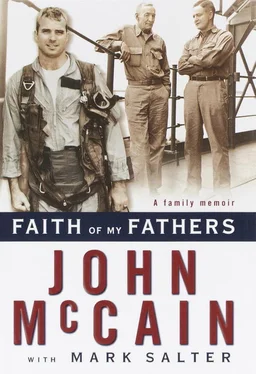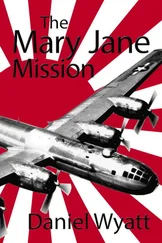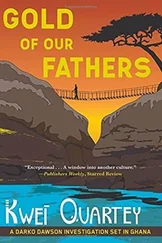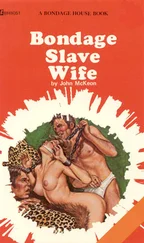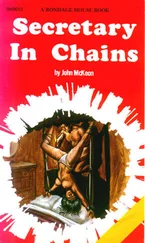On August 7, in the first amphibious operation conducted by American forces since the Spanish-American War, the 1st Marine Division landed on Guadalcanal to prevent the Japanese from using a nearly completed airfield for their land-based bombers. Simultaneously, three thousand Marines landed on nearby Tulagi Island to seize its harbor and the Japanese seaplane base there. Despite being harried by Japanese bombers, the landings were astonishingly successful. The Marines, encountering ineffective opposition on the ground, had secured all beachheads on the two islands as well as the air base on Guadalcanal by the evening of August 8. They renamed the captured base Henderson Field.
Whatever relief American commanders may have felt over the initial success of the operation was soon forgotten in the disaster that occurred forty hours after the first Marines had waded ashore. Shortly after midnight on August 9, a task group from the Japanese Eighth Fleet surprised the divided Allied naval force protecting the landings. The ensuing Battle of Savo Island, named for a small volcanic island several miles off Guadalcanal, ended in what Morison accurately termed “the worst defeat ever inflicted on the United States Navy in a fair fight.” By the time the Japanese admiral in command of the enemy force called off the attack for fear of being counterattacked by American carrier planes, his ships had sunk four heavy cruisers and one destroyer, killing 1,270 men.
Fortunately, the Japanese, having gained by their victory command of the sea, failed to land adequate reinforcements on the islands. Thus the Allied defeat was not a decisive event in the battle for the Solomon Islands. It was, however, a bloody defeat, giving a name to the water between Savo and Guadalcanal islands—Ironbottom Sound. Worse, the surviving Allied ships that had been forced from the area had not completed off-loading the landing force’s food and arms. Sixteen thousand Marines were left stranded with only half their weapons and supplies on the densely forested, mountainous island. They were forced to live on reduced rations and whatever rice they could scrounge. Consideration was given to withdrawing them, but the value of the easily taken Henderson Field, with sufficient space and level ground for large bombers and poorly defended by a small Japanese garrison, motivated Allied commanders to continue the campaign.
On August 15, my grandfather ordered the first Marine Corps planes to land at Henderson. Supplies and reinforcements arrived the same day by sea. On August 18, the Japanese landed a small, inadequate force of a thousand men. The Marines destroyed them two days later. More Japanese reinforcements were under way, arriving almost nightly. By mid-September, six thousand Japanese were ashore, still not a sufficient number to dislodge the Marines, but battles raged daily throughout most of the month. In the Battle of Bloody Ridge a thousand Japanese were killed at a cost of forty Marines. Nevertheless, the Japanese managed to continue reinforcing their garrison, and the most serious land battles for Guadalcanal would not begin until October, after my grandfather had been ordered to Washington by President Roosevelt to serve as Chief of the Bureau of Naval Aeronautics and Deputy Chief of Naval Operations.
In the early weeks of the campaign, Japanese planes and ships made up for lack of progress on the ground by pounding Guadalcanal daily with shells and bombs. My grandfather rushed planes, fuel, and ammunition to the island and organized air strikes against the enemy. Gasoline was in terribly short supply on the island, and extraordinary heroics were performed by the skippers and crews of seaplane tenders, their ships overloaded with drums of fuel, who sailed through exceedingly dangerous waters and under skies thick with enemy planes to carry gasoline to Guadalcanal. He spoke often and gratefully of the courage of the crews that brought gasoline to his dry planes at Henderson.
He also became emotional, often crying, when he recalled the faces and spirit of the Marines and pilots defending the airfield in those exhausting, dangerous early weeks of the campaign. He spoke of his young pilots who “took a beating unequaled in the annals of war. Without relief, they fought day after day, night after night, for weeks.”
In September he twice flew to Guadalcanal in a B-17, leading large contingents of fighter planes to Henderson, “slipping them in at dusk when the Japs couldn’t see us.” He stayed ashore, under fierce bombing from Japanese aircraft.
He later told one of his air commanders that the pilots he met there had resigned themselves to die for their country and had shaken his hand with the attitude of men “taking a last farewell.” For the rest of the war, the loss of a single pilot would distress him terribly. I suspect every casualty report he read must have summoned up the faces of those fatalistic pilots on Guadalcanal who were ready to die at his command.
There was one story from his experiences on Guadalcanal that he always delighted to tell. One night after he had gone to sleep, a wave of Zeros attacked, and a Marine lieutenant escorted him to a trench, where he took cover with a crowd of tired Marines. One sergeant, particularly weary of this nightly ritual, expressed his displeasure by shouting a string of profanities over the noise of the attacking planes. The lieutenant yelled at him, “Pipe down! We’ve got an admiral in here.” The offending Marine paused for a moment and then loudly sighed, “I’ll be good and almighty damned,” causing the admiral in question to laugh heartily, grateful to be so amused at a moment of peril.
My grandfather was awarded the Distinguished Service Medal for his leadership during the early days of the Solomon Islands campaign. The citation commended his “courageous initiative,” “judicious foresight,” and “inspiring devotion to duty.”
As Chief of the Bureau of Naval Aeronautics, he made one last visit to Guadalcanal in January 1943. Halsey, Nimitz, and my grandfather flew to Guadalcanal together to inspect the airfield and the condition of the men still fighting what remained of the enemy garrison.
Bull Halsey had assumed command of the South Pacific fleet in October. After a series of legendary sea battles during which Halsey had secured his reputation as a daring and determined commander, culminating in the Battle of Guadalcanal from November 12 to the 15th, Japanese hopes of retaking the island became futile. Over a period of six days beginning on October 20, significantly reinforced Japanese troops were defeated in fierce jungle fighting by the now battle-hardened Marine defenders. Their grim, bloody battles ensured Guadalcanal’s vaunted place in American military lore. By the middle of November, Japan’s defeats on land and sea had guaranteed that the island would remain in American hands. Yet they fought on for nearly three more months.
My grandfather, returning to the island in the last days of the campaign, was impressed by what he found, relieved to see fit, vigorous, well-supplied, and confident Marines mopping up the last of the enemy. The valiant 1st Marine Division had by this time been relieved by fresh reinforcements. And he went to sleep that night in a small hut near the airfield, happy and confident that the long, difficult struggle was nearly won.
Halsey’s biographer, E. B. Potter, wrote: “There were few wiser or more competent officers in the navy than Slew McCain, but whenever his name came up, somebody had a ridiculous story to tell about him—and many of the stories were true.” Potter was right. Even today, I receive letters from men who served with my grandfather and want to share an anecdote about him. Among my favorites is the story of his last night on Guadalcanal.
After he, Halsey, and Nimitz had retired for the night, at about ten-thirty, Japanese bombers attacked. The admirals had just survived an attack the day before, while they were conferring at the naval base on Espíritu Santo. With the evening attack at Henderson, it was clear that Japanese intelligence had learned of the presence of three admirals in the field, and that they were the target of the attack. Halsey and my grandfather left their huts as the first bombs struck, each diving for cover into a different trench. As legend has it, my grandfather’s trench was a latrine ditch—the latrine had been moved that morning, but the trench had not yet been filled in with dirt. My grandfather is said to have spent the rest of the raid there shivering in foul conditions and the mosquito-infested night air.
Читать дальше
